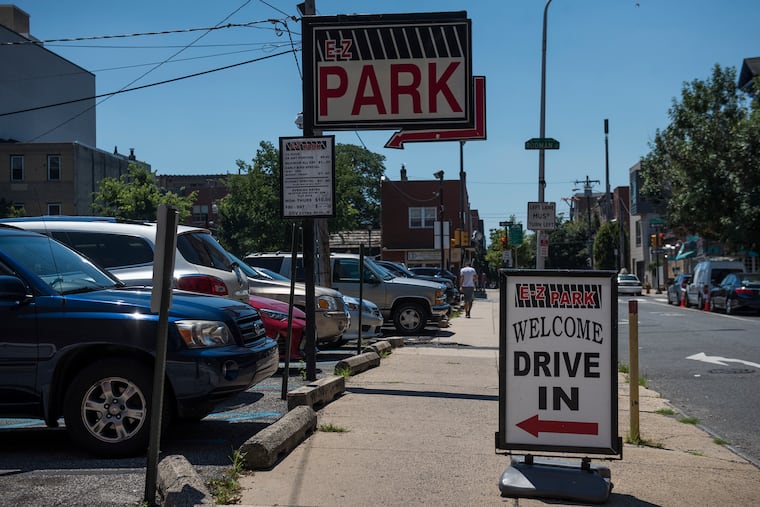Why do Philadelphians fight the loss of street parking? Experts discuss and debate.
Hard decisions lie ahead about parking, and car culture more generally, as the city faces an affordable housing crisis and the need to fight climate change.

At the end of an Urban Land Institute discussion Thursday about Philadelphia’s Parking Wars (definitely a subject requiring capital letters), an attendee asked: How would you bring about a truce?
After a robust discussion detailing the causes and consequences of the city’s parking policies, the panel of experts in urban planning, public transit, economics, and design, as well as the CEO of a large parking company/developer, had no ready answers to that question.
But there is a consensus that hard decisions lie ahead about parking in Philadelphia — and car culture generally — as businesses and SEPTA continue to try to recover from COVID-19 and the city faces a crisis in the availability of affordable housing and the need to address climate change.
Here are several takeaways from more than an hour of a rollicking discussion at the Center for Architecture and Design:
There’s no such thing as free parking
That elusive open spot at the curbside feels free to the person parking a car there, but that’s because, in a variety of ways, the market does not attach a value to that space that reflects its true cost. It’s subsidized.
The $35 the Philadelphia Parking Authority charges for a neighborhood parking permit, which has remained at the same level for years, does not even cover the cost of administering the program and it’s cheaper than a space in a private garage, said Jon Geeting, engagement director of the urbanist political committee Philadelphia 3.0.
“There’s a heavy, hidden subsidy there, just like free parking at the grocery store,” Geeting said. He does his shopping by bike, but the cost of validated parking for others who drive is folded into the cost of the groceries, he said. “The cost of parking is kind of hidden in everything we do.”
Anne Fadullon, director of the city Department of Planning and Development, added: “People have grown to think that free parking is just everywhere, and ‘I’m entitled to it.’” The trend started in the 1920s as cars spread in popularity and cities began requiring stores and other business and residential buildings to provide parking spaces.
One way to transition to more walkable and less car-reliant cities is to charge people a price for parking that is close to its true cost, she said.
People who’ve experienced gentrification have good reasons for fighting the loss of street parking.
“Parking is not only about parking, it’s about all the realities that people have experienced,” said Frank Robinson, vice president of Econsult Solutions Inc., an economic consulting firm for businesses and government. “So you have pockets of the city that have been totally gentrified and which are a little bit more walkable and accessible, but the people who lived there got pushed out into other areas.”
So when development is proposed in their neighborhoods, they are “experiencing the trauma they’ve been through the last 10, 15 years,” Robinson said.
Meet people where they are. Don’t talk down.
Panelists grappled with how to convince people that changes in the cost and availability of parking or taking transit more and driving less would benefit them and help the environment.
“We have this vernacular down and we’ve got to figure out how do we meet communities where they are, with language that they can understand,” said Fadullon, the chief city planner. “First of all, we have to listen and learn their language, and then we have to explain it to them in a way so it doesn’t feel like we’re just trying to impose our policy on them. And it’s not easy to do.”
People’s relationships with automobiles are deeply entwined, for example, and it may do no good to dismiss that in trying to sell change.
“Part of the culture that we are coming out of says, you know, having a car is kind of one of the ways that we used to say, ‘I made it. I’m successful,’” Robinson said. “‘That’s my status,’ so changing any of that has implications.”